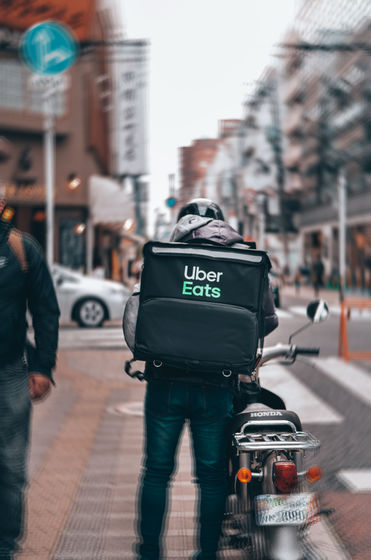Uber, Lyft, DoorDash and others start minimum income guarantee and medical assistance for drivers, in California where new law is enacted

Dispatch services leading Uber and Lyft, on November 3, 2020 is the home of DoorDash to get started meal delivery service in California, over a law requiring welfare expansion to the driver to undertake the work through the app to businesses
Uber and Lyft roll out new benefits for California drivers under Prop 22 --The Verge
https://www.theverge.com/2020/12/14/22174600/uber-lyft-new-benefits-california-drivers-prop-22-gig-economy
The work styles of the gig economy , including the meal delivery service Uber Eats, have expanded rapidly in recent years due to their convenience and the effects of the new coronavirus infection . On the other hand, in response to Uber and Lyft's positioning of drivers as 'self-employed,' it has been pointed out that ' fuel costs and car maintenance costs are being passed on to drivers ,' and ' regular. It should be recognized as a worker . '
Against this backdrop, California has enacted California State Legislature Bill No. 5 (commonly known as the 'AB5 Bill'), which requires delivery service drivers to be treated as employees rather than self-employed, from January 1, 2020. It was enforced. However, even after the enforcement of AB5, Uber and Lyft continue to treat drivers as self-employed, and the Supreme Court of California's suspension order for the purpose of improving this situation has been postponed due to suspended sentence. The current situation is that the enactment has not led to improved treatment for drivers.
Uber and Lyft are on the verge of suspension of operations, court order to 'make a driver an employee' postponed --GIGAZINE

by Stock Catalog
Meanwhile, on November 3, California held a referendum on Proposal 22 (Proposal 22) in California for the purpose of deregulating AB5, which was passed with the support of 58.63% of the total number of votes. I did. Uber, Lyft, and DoorDash are said to have invested more than $ 200 million (about 20.8 billion yen), the largest ever in California, in the Yeson22 campaign aimed at passing Proposal 22.
As mentioned earlier, AB5 requires California drivers to be treated as employees, with the exception of Proposal 22 which allows Gig Economy drivers who undertake work through the app to be classified as self-employed. It was. Instead, Proposal 22 requires drivers to provide work-mediated businesses with minimum income guarantees, medical subsidies, car insurance, and more.

Following the passage of Proposal 22, which stipulates the expansion of welfare programs for drivers, Uber and other ride-hailing and delivery service companies have all come up with measures to improve the treatment of drivers.
Uber updated its official blog on December 13th to announce a new benefits program. The program guarantees the driver a salary of at least 20% more than the minimum wage and pays 30 cents per mile (about 1.6 km) as an expense. In addition, drivers who earn less than the minimum wage guarantee amount in two weeks will be automatically paid the difference between the two amounts. Lyft, like Uber, has announced that it will pay 120% of the minimum wage and a compensation of 30 cents per mile.
On the other hand, DoorDash on November 5 days immediately after the proposed 22 is passed, to pay medical subsidies from the April 2021 announcement was. The specific details of the medical subsidy will be disclosed later.
Regarding the response of each company that received Proposal 22, the IT news site The Verge said, 'Gig economy companies said,'AB5 deprives drivers of flexibility and increases waiting time and usage fees for users, while Proposal 22 While continuing to classify drivers as self-employed, they can also provide additional benefits. ”However, opponents argue that“ Proposal 22 does not provide the same financial stability as full-time employment. ” I am doing it. '
Related Posts:
in Web Service, Posted by log1l_ks






